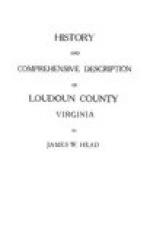The early settlers, with but one class exception, had no costly tastes to gratify, no expensive habits to indulge, and neither possessed nor cared for luxuries. Their subsistence, such as they required, cost but little of either time or labor. The corn from which they made their bread came forth from the prolific soil almost at the touch of their rude plows. Their cattle and hogs found abundant sustenance in the broad pastures which, in the summer, yielded the richest grass, and in the woods where, in the fall, the ground was strewn with acorns and other like provender.
The pioneer lived roughly; the German from the Palatinate kept house like the true peasant that he was; the planter lived somewhat more sumptuously and luxuriously; but, in nearly every case, the table was liberally supplied. Hominy, milk, corn-bread, and smoked or jerked meats seem to have been most popular with the humbler classes.
Ice was not stored for summer use, fruits were few and not choice, and the vegetables limited; our ancestors, at that time, having no acquaintance with the tomato, cauliflower, egg-plant, red-pepper, okra, and certain other staple vegetables of today. The Indians had schooled them in the preparation of succotash with the beans grown among the corn, and they raised melons, squashes, and pumpkins in abundance.
Corn for bread was broken in a mortar and ground in a grater or hand-mill. Mills, in the early days, were few and far apart, some of the back-settlers being compelled to travel many miles for their grist. This condition gave origin to the adage “first come first served,” and frequently carried the late arrivals over night and, at times, prolonged the trip to procure a few bushels of meal three or four days. “Band-mills,” run by horses, and small water mills, where the situation permitted, came into use to supply the demand of larger ones. The building of a good mill, it must be confessed, was hailed with greater satisfaction than the erection of a church.
The more primitive of these peoples ate from wooden trenchers and platters; sat upon three-legged stools or wooden blocks; used bear’s grease in lieu of lard and butter, and cut their foods with the same sheath-knives used in disembowelling and skinning the deer killed by their rifles. They had no money and their scant furniture was essentially crude, sometimes including a few pewter dishes and plates and spoons, but usually nothing beyond wooden bowls, trenchers, and noggins, with gourds and squashes daintily cut. The horse trough served as a wash-basin, and water buckets were seldom seen. The family owning an iron pot and a kitchen table were esteemed rich and extravagant, and china and crockery ware were at once practically unknown and uncraved. Feather-beds and bedsteads were equally eschewed, these hardy men who had conquered the wilderness not disdaining, when night came, to sleep upon a dirt floor with a bear-skin for covering.




